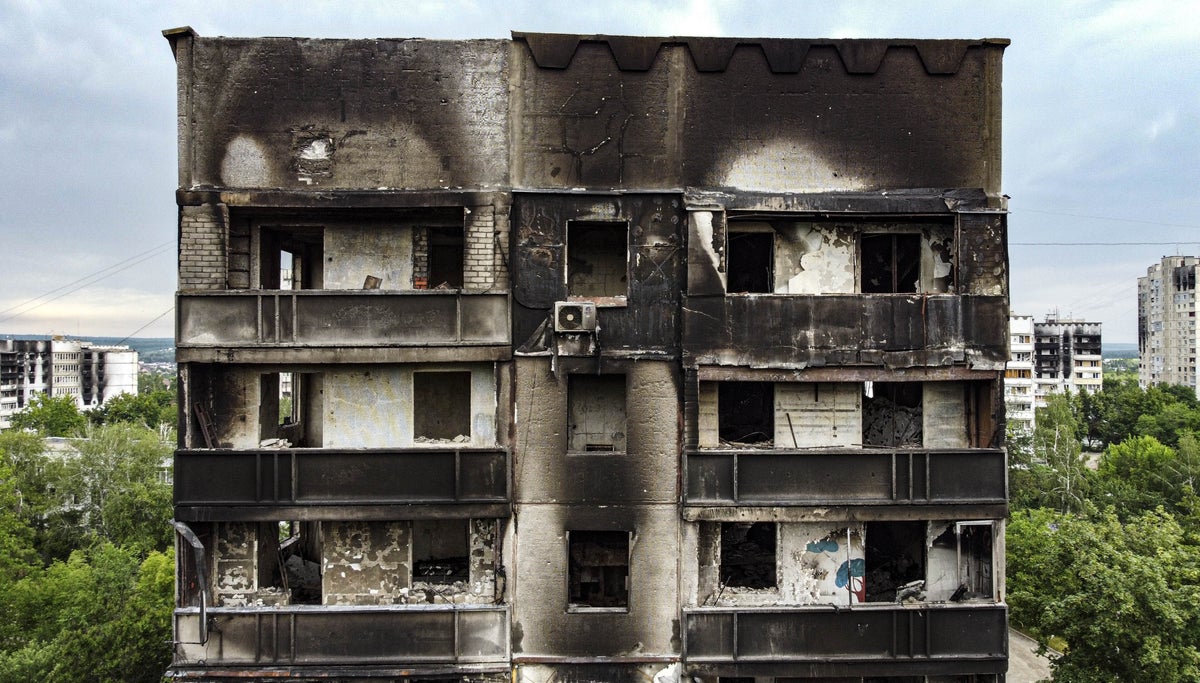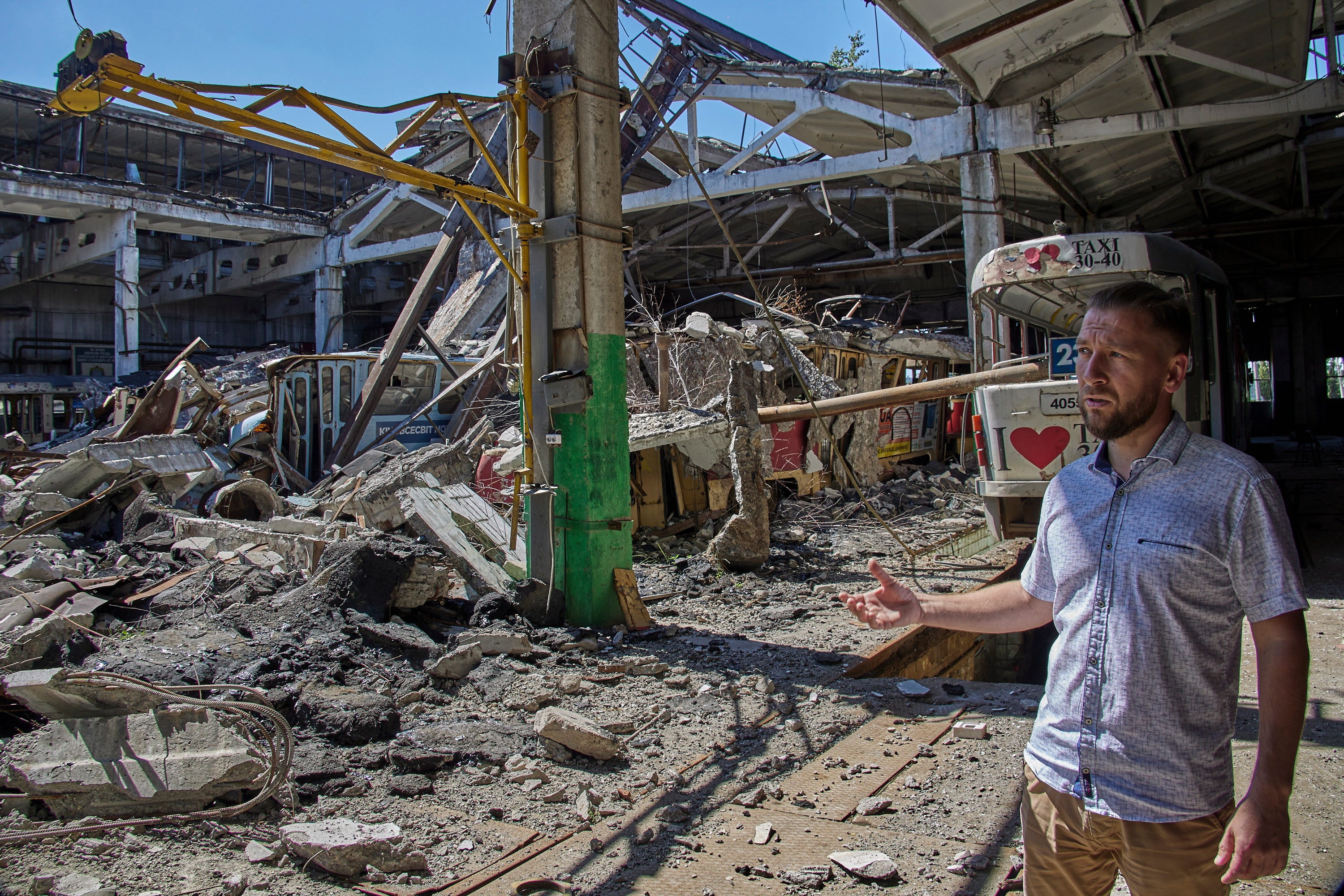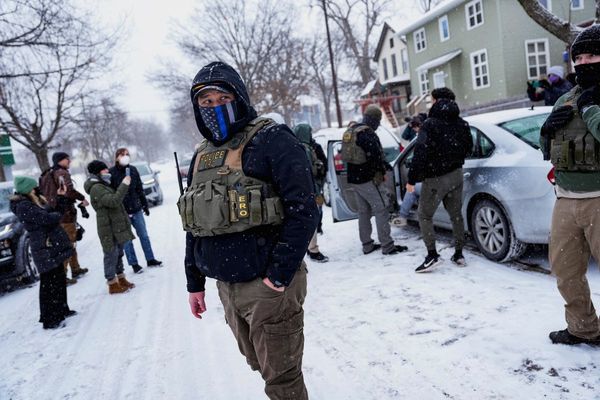
Russia’s indiscriminate shelling of civilian infrastructure – including children’s playgrounds – in the city of Kharkiv is a war crime, Amnesty International has claimed.
Hundreds of Ukrainian civilians have died and scores of others have been maimed in Russian attacks on Kharkiv, the organisation said.
Located close to the border with Russia, the northeast Ukrainian city, which was home to 1.5 million people before Vladimir Putin launched his invasion, has been widely hit by banned cluster munitions and unguided rockets in violation of humanitarian law, according to the new research.
Evidence found in craters across Kharkiv show the Kremlin’s forces have routinely fired rockets such as Grads and Uragans as well as outlawed 9N210/9N235 cluster munitions at the city.
“Launching indiscriminate attacks resulting in death or injury to civilians, or damage to civilian objects, constitute war crimes,” Amnesty said.
“Unguided artillery shells have a margin of error of more than 100 metres. In residential areas where buildings are no more than a few metres apart, such inaccuracies are virtually certain to cost civilian lives and cause widespread destruction of civilian infrastructure,” it added in its report.
Donatella Rovera, the organisation’s senior crisis response adviser, said Kharkiv, which is still controlled by Ukraine, had faced “a relentless barrage of indiscriminate attacks in recent months”.
“People have been killed in their homes and in the streets, in playgrounds and cemeteries, while queueing for humanitarian aid, or shopping for food and medicine,” she said.
Ms Rovera added: “The repeated use of widely banned cluster munitions is shocking, and a further indication of utter disregard for civilian lives.
“The Russian forces responsible for these horrific attacks must be held accountable for their actions, and victims and their families must receive full reparations.”
As well as visiting the scene of strikes, Amnesty’s researchers spoke with eyewitnesses, victims and their families. In total, they investigated 41 strikes, which killed at least 62 people and injured almost 200 people.
Some 606 civilians have been killed and another 1,248 wounded since the start of the war, the director of the medical department at the Kharkiv Regional Military Administration told Amnesty.
Oksana Litvynyenko, 41, was among those who died as a result of Russian shelling, succumbing to her wounds on 11 June, weeks after she suffered critical injuries.
She had been walking past a playground with her husband Ivan and their four-year-old daughter when shrapnel pierced her body and punctured her lungs and spine.
Speaking on 26 April, Ivan told Amnesty that he had seen a flash and had pushed his daughter between him and a tree to protect her. They then looked up to see Oksana lying in a pool of blood.
“Our world has been turned upside down,” he said at the time, unsure whether his wife would recover.
In another attack, at least six people died and 15 were wounded on 24 March when cluster munitions rained down close to Akademika Pavlova metro station, where crowds were queuing to receive aid.

“It was really a horrible situation, shrapnel was falling like rain,” said one local police officer, who witnessed the attack.
Amnesty’s recent findings are the latest in a long line of alleged war crimes committed by Russia, accusations which are now being investigated by the international courts. Moscow continues to deny that its troops have targeted civilians, despite evidence to the contrary.
Earlier in the war, hundreds of bodies were found in Bucha, a suburb of Kyiv that had been under Russian occupation. Elsewhere, satellite imagery appeared to show mass graves were dug near the city of Mariupol, which the Kremlin’s soldiers shelled constantly for three months before capturing it in May.
In its latest bloody assault, Russia has attempted to shell Sievierodonetsk into submission. Its troops now control most of the heavily contested eastern city.
“The Russians are destroying quarter after quarter,” Serhiy Gaidai, the governor of Luhansk province, said on Monday.
Ukrainian president Volodymyr Zelensky said on Sunday that Russia is being judged by the world for its indiscriminate attacks, which have killed hundreds of children and other citizens.
“These very facts will underscore the way in which Russia is seen by the world,” he said.







